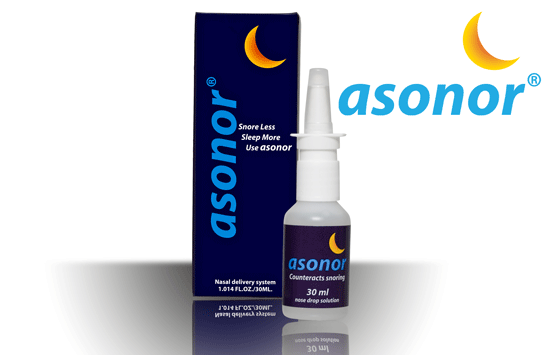Snoring may or may not indicate an underlying condition. It may be something as simple as having a cold and a congested nasal passageway. In most cases, these issues will resolve themselves over a brief period of time. However, in other cases, snoring can be an indication a more concerning and serious physical condition. The air we breathe typically moves through clear nasal passages as we sleep. However, when it gets blocked or narrows, snoring results. Most people ignore snoring initially and only start paying attention when things escalate. From serious health risks to relationship issues that happen as snoring prevents a couple from sleeping together in the same room, everything tends to go downhill.
What should You be concerned about if You Snore regularly?
The snoring sound is made when tissues such as the soft palate or uvula vibrate inside our airways. There are numerous factors that can contribute to our snoring, how it can pose a threat to our health, and why snoring shouldn’t be ignored, including the ones we have listed here:
Cardiovascular disease – snoring may be an early indicator of cardiovascular disease. Research has revealed how individuals who snore despite not having a sleeping disorder are more prone to developing thicker carotid arteries. Thicker carotid arteries have been associated with cardiovascular disease. When a person snores excessively, the vibrations that result cause inflammation. As a result, the carotid arteries thicken and can increase a person’s risk of having a stroke or other cardiovascular problems.
Deviated septum – this condition can also cause snoring. The dividing wall inside the nose that is comprised of bone and cartilage is known as the “septum.” If it deviates into an S-shape, it can obstruct the nasal passages and cause you to snore. It can shift to one side as well, which causes a narrowing of one of the nasal passages. When nasal passages get blocked, it interferes with your airflow and causes you to snore.
Hypothyroidism – this is a condition that is caused when your thyroid gland fails to produce enough hormones. Some of the more common symptoms of hypothyroidism include brittle hair and nails, depression, dry skin, fatigue, sensitivity to the cold, and snoring. If you’re experiencing any or a combination of these symptoms, and you snore frequently, it could mean that an under-performing thyroid gland is the culprit.
Nasal polyps – these are growths that cause inflammation of nasal and sinus tissues. While these growths aren’t usually a cause for alarm by themselves, they can block your nasal passages if more develop and form clusters inside the nose. As a result, this forces you to breathe through your mouth and causes you to snore. Nasal polyps can interfere with your sleep and adversely affect your overall health and well-being.
Obesity – individuals who are obese tend to snore regularly. When you’re overweight, the excess body fat can put a strain on your heart and joints. In addition to overworking your heart and joints, obesity typically leads to extra fatty deposits throughout your body including the neck and throat. This accumulated fat puts additional pressure on your throat which in turn causes your airway to be obstructed and you to snore.
Obstructive sleep apnea (OSA) – if your sleep partner has noticed that you’re snoring more frequently and much louder as well as choking or gasping for air, you may have a serious sleeping disorder known as OSA or Obstructive Sleep Apnea. OSA causes your airway to partially or totally collapse while sleeping. When this occurs, you might stop breathing for 10 seconds or longer. This can happen hundreds of times a night.
When you stop breathing, it jolts you awake each time so you start breathing again. Needless to say, this can adversely affect your quality of sleep. It can also lead to other concerning issues such as a lack of concentration, anxiety, daytime fatigue, depression, and forgetfulness. More importantly, if OSA is left untreated, it can result in serious or even life-threatening health problems such as:
- arrhythmias
- cardiomyopathy
- diabetes
- heart failure
- hypertension (high blood pressure)
- obesity
- stroke
Sinus problems – inflammation of the sinuses causes a condition known as sinusitis. For many individuals, this can become a chronic problem. Just like with nasal polyps (see above), sinusitis causes congestion in the nasal passages and hinder your ability to breathe through your nose. Consequently, this forces you to breathe through your mouth. Mouth breathing during sleep causes the muscles in your throat to relax. In turn, this narrows your airway and causes you to snore.
Additionally, there are issues in inter-personal relationships as your snore more every night. Not only you but your bedpartner is unable to get a good night’s sleep. That affects their productivity the next day. Lack of sleep and poor concentration, daytime drowsiness can add to the woes of modern day living. All of that leads to higher stress, mood swings and increased irritability of both the partners. And that affects a relationship.
When should You see a Doctor about Your Snoring?
If you and your sleep partner have concerns about your snoring, it may be time to speak with a doctor if you or they notice any of the following:
- awakening with a dry mouth or sore throat
- choking or gasping during sleep
- constant complaints from your sleep partner about how your loud snoring disturbs their sleep at night
- experiencing pain that hinders your ability to sleep
- feeling exhausted and tired almost every day
- frequently irritability and moodiness
- waking up with a headache
If you want lasting relief from snoring, our Anti-snoring Solution may just be the remedy you’ve been searching for. Send an e-mail message with your questions to [email protected] or visit the Asonor website today.






